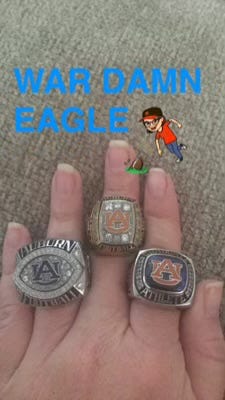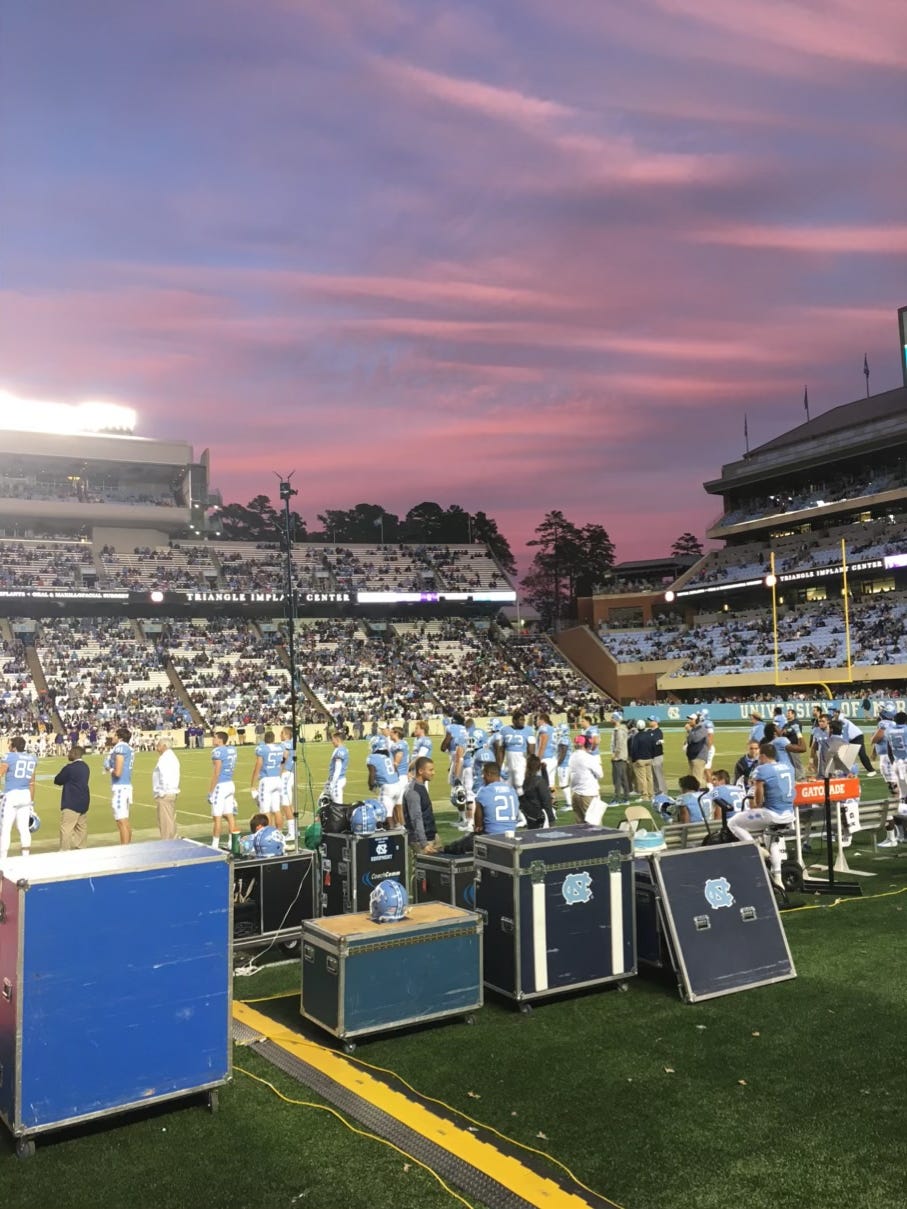When recruiting for MBA@UNC I used to talk to a lot of New Yorkers. One of the questions that the bolder would ask me was “why should I go to UNC online and not go to NYU Stern in person?” [Hot take - ask hard questions - you should be interviewing the school as much as they are interviewing you.]. My answer was always the same - go to Stern if you’re a finance person who only wants to be around finance people and have the same thoughts as all the other finance people. One of the greatest aspects of an online degree is the variation in geography and in geographic thought. I’m not saying everyone in NYC thinks the same, or in Chapel Hill or Tuscaloosa. But there is a reason we call them blue cities and red cities. You’re far more likely to find conservative thought, football worship and a dedication to fried green tomatoes and white BBQ at Bama than you are at Bryn Mawr.
As much as [for ridiculous reasons] DEI is under fire at a lot of places, people are missing the huge benefit of diversity of thought and background. One of my favorite MBA students had been a star running back at Auburn. I went to Smith, what do I know from the SEC? It’s beyond football, though I am now a huge college ball fan. I’ve never seen anyone work as hard as Stanton Truitt. Honestly elite athletes ruin it for the rest of us. His UNC and my UMD are similarly ranked schools and he played top level football while getting a pretty damn good MBA. I, on the other hand, got an MBA and a lot of naps. War Damn Eagle.
I’ve worked with athletics at multiple universities, especially football. Another favorite was a quarterback who came to me with a complaint. [Everyone came to me with complaints]. He had failed a negotiations exercise, he thought it was unfair. So, QB1 (I really like saying that) comes to me with his complaint. It was a role play of negotiating a job offer. Nowhere in the directions did it say you had to come to an agreement, but all the other groups had. He refused all offers his partner made. Why? He was watching his friends get NFL deals and knew that sometimes you skip practice in order to get a better contract later. Ask Jordan Love about this technique and then tell me that my QB should have gotten a zero. Nope, it’s a valid way to negotiate, at least in football. All of his classmates and his professor [yes, he got it regraded] learned something that day, something they probably won’t even forget. [Not a tactic I’d take in the average office, by the way, although it seems to work for Brian Niccol.]
I’m neither a football player nor the CEO of Starbucks, so why does this matter? At some point in all those classmates’ lives [and mine] they’ll think about that negotiation and they’ll apply it to their own work. If nothing else, it’s a great example of a BATNA.
For many liberal arts graduates [go Smith!] the thought of an MBA is both tantalizing and terrifying. Are we “quant” enough? Will we get in? The best MBA students are those who come from fields other than quant, in my opinion. During my own MBA one of my favorite classmates had previously been a massage therapist and a case manager. Not only did she get the highest GMAT score in our class, she brought humanity into places where it often isn’t. Finance was not just about shareholder value, but she and I brought in questions of living wage, and environmentalism. [These weren’t necessarily welcomed, but we sure made people think!]
If I were designing an ideal generalist program like an MBA, I would absolutely look for diversity in thought amongst applicants. In fact, all degrees can benefit from a pivot in thinking. This summer at COLTT I learned that CU Engineering has ethics embedded in their programs, along with writing. Genius way to set oneself apart from all of the other programs out there, and a fantastic way to make their graduates more thoughtful and better employees overall, by bringing a different focus along with their engineering. I really hope their grads are stressing that aspect in job searching. That reminds me of a UNC alumna in 2016. She had been asked about her online MBA - at that time, it was often seen as “less than.” Her brilliant [and still valuable[ answer was that business is global, and she had been working globally for 2 years already. [She got the job.]
The hiring process would benefit hugely from this thought process. I understand the quandary - you want new employees to “hit the ground running” while at the same time you want to set yourself apart from competitors. Have you ever thought that those may be mutually exclusive? Of course, there are absolutely systems issues that if you do not understand at a deep level, you shouldn’t be hired. I’ve argued that myself about online learning. When legal/compliance is on the line, yes, go with experience. However, when you are trying to innovate, or to go blue ocean, look creatively.

If you only hire people who’ve had the exact title elsewhere, what are you getting? Certainly you’ll have very little friction in getting them up to speed, if you’re OK with copying their former employer. If I’m trying to grow a company and win over market share, why would I deliberately copy the competition? I’ve met a lot of people who used to work at 2U, the biggest player in the OPM [online program manager] field. Most of the ones I met insisted on doing everything they did at 2U. I have no problem with 2U - they set the standard in many ways. However, if you’re trying to grow an online degree, why follow exactly what the biggest competitor is already doing better than you are? No first mover advantage, and you’ll go broke trying to copy them. [Well, there is also the problem that 2U also went broke themselves, earlier this year.]
Look, I get it, the employment market right now is horrible. Who wants to sort through 400 resumes, 90% of which have no relationship to the job? I hear you. This is where cover letters should help, perhaps, but it seems like they don’t. OK, look for keywords and numbers and job titles. You won’t get anything new - you just might have to train less. Your blue ocean is more like an above ground pool. What if, hear me out, you added one question to your job applications. Something like “if this is a career change for you, tell me why you’re a great fit.” Then actually read those before you read anything else on a resume. People might surprise you.






